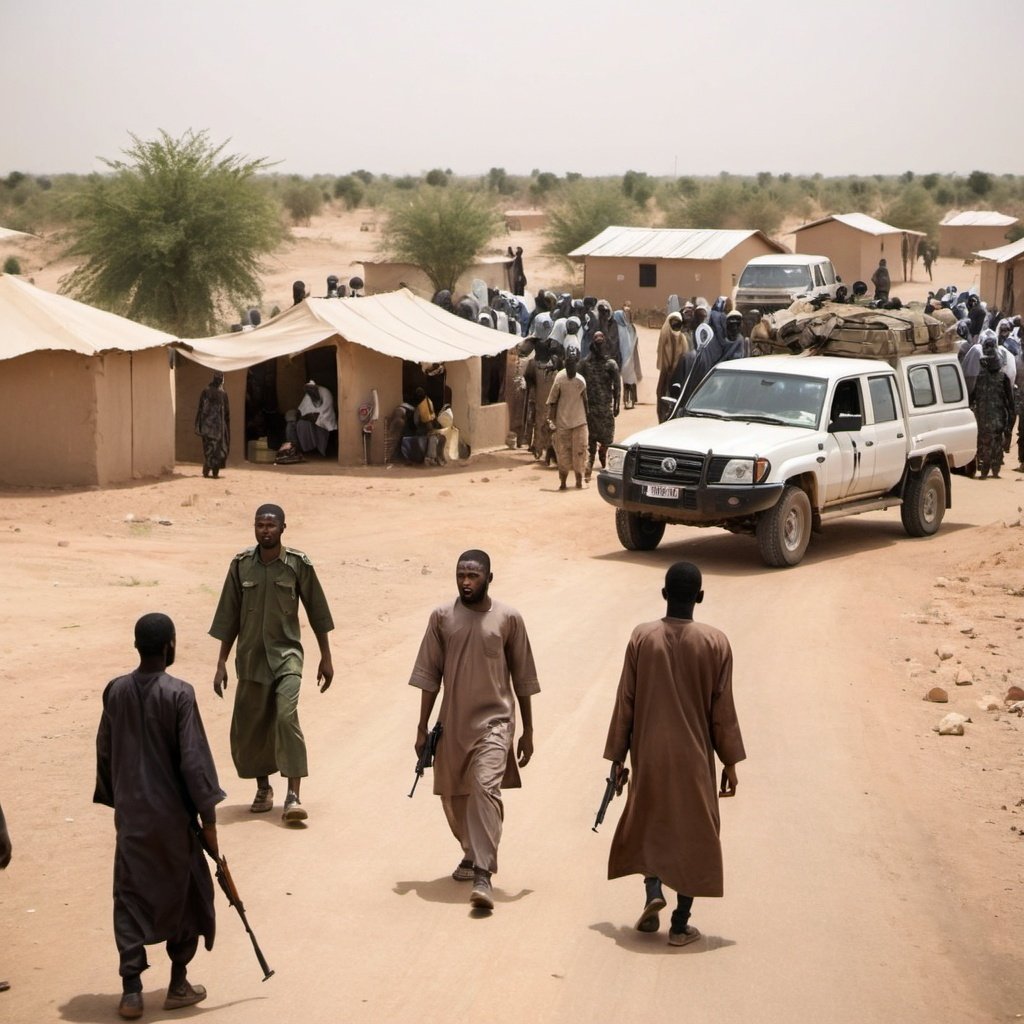Jihadi Migration from the Sahel turns Nigeria’s Kainji Lake National Park into a terror base, endangering locals and wildlife, while exploiting the region’s poverty and remoteness for influence
In a striking report by the Clingendael Institute, Nigeria faces a burgeoning security threat as jihadi fighters from the Sahel cross into the nation’s northwestern territories. These extremists, believed to be linked to al-Qaida, have moved from Benin and settled in Kainji Lake National Park, a region already troubled by armed groups.
From Tourist Haven to Terror Ground
Once a serene tourism center, Kainji Lake National Park, spanning 5,300 square kilometers, is now closed to the public due to the escalating security threats. John Yerima, a local resident, lamented, “You cannot enter that road now. It is dangerous, seriously.” This marks a stark transformation from its former status, putting both human and wildlife lives at risk.
The Bigger Picture: Jihadis’ Strategic
The sustained presence of these militants in the park suggests a potential link between Nigeria’s domestic insurgents and Sahel-based al-Qaida affiliates. This could be a stepping stone for the extremists to establish a more significant presence, leveraging the region’s remoteness, rich mineral resources, and pervasive poverty to their advantage.
A Glimpse into Global Jihad
As noted in the Clingendael report,
“A link between Lake Chad and the Sahel is a major opportunity for al-Qaida and the Islamic State to boast about their profiles as leaders of global jihad.”
This connection could amplify their influence and operational capabilities, posing a severe threat to the already fragile security landscape in Nigeria.
Conservation in Crisis
The presence of armed groups in Kainji Lake National Park further endangers the already declining lion populations due to poaching and climate change. Stella Egbe, senior conservation manager at the Nigerian Conservation Foundation, stressed, “The security situation has become top of the list when it comes to the concerns about the lion populations in Nigeria.
Military and Security Dynamics
Despite aerial bombardments and military deployments, Nigeria’s security forces are stretched thin, struggling to combat both jihadi and bandit threats effectively. James Barnett, a fellow at the Hudson Institute, noted, “The Sahelian jihadis potentially can try to use northwestern Nigeria as a place for fundraising, for logistics and to try to influence the jihadi groups there as part of their own competition.”
Banditry and Jihadi Nexus
While banditry remains the primary security concern across many villages in northwestern Nigeria, occasional collaborations with jihadi fighters have led to devastating attacks. Barnett highlighted the gravity of such alliances, warning of “very deadly consequences
Conclusion: Navigating the Danger Zone
Nigeria stands at a precarious juncture, with the Sahel’s extremism spilling over into its territories. As the government grapples with these security challenges, it is imperative to address the root causes like poverty and strengthen conservation efforts to protect both human lives and wildlife.
